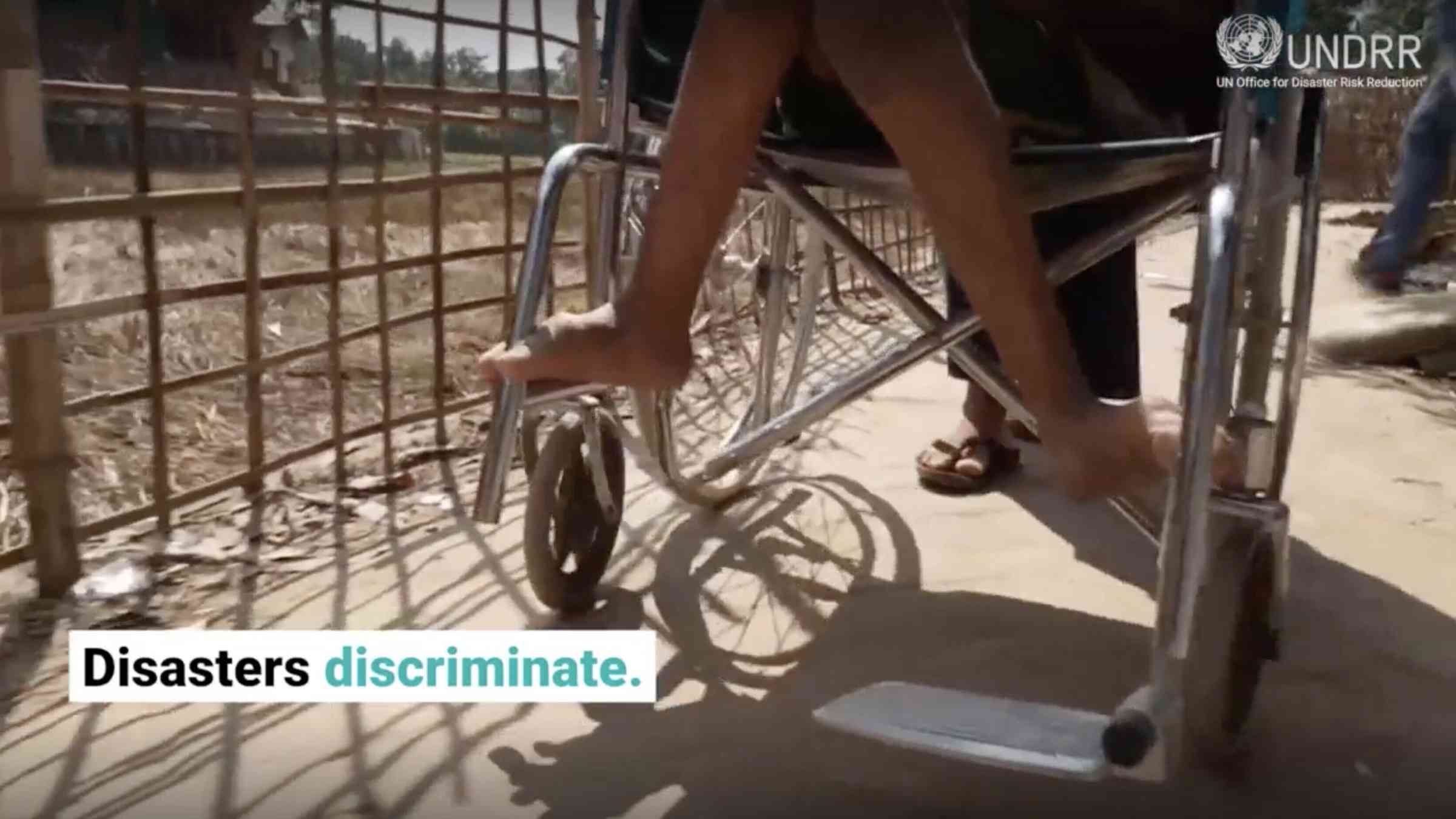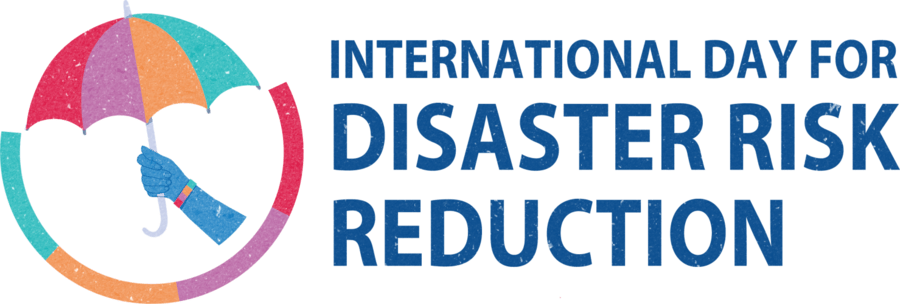World must act on unacceptable failures to protect persons with disabilities from disasters

Global UN survey on how persons with disabilities are prepared to cope with disasters reveals severe lack of progress since analysis a decade ago.
Persons with disabilities face a shocking lack of support to cope with disasters, with no progress in the last decade, despite a huge increase in climate disasters worldwide. The lack of progress could be a violation of international law. This was among the findings in a report published today by the United Nations Office for Disaster Risk Reduction (UNDRR) summarising the results of the second ever Global Survey on Persons with Disabilities and Disasters
Persons with disabilities make up 16% of the world’s population and, in some cases, are tragically killed by disasters at a rate that is two to four times higher than the general population. The survey captured over 6,000 responses from 132 countries to evaluate progress on government policies that should protect from disasters. The results are analysed against the first survey conducted in 2013 and come ahead of the International Day for Disaster Risk Reduction on 13 October, on the theme of fighting inequality.
The new survey found limited progress on disability inclusion over the past ten years, with no significant advances in any region. Specifically, 84% of respondents in 2023 reported not having a personal preparedness plan in case of a disaster, such as knowing the evacuation routes, available shelters and having emergency supplies. In 2013, this figure was 71%.
Notably, the 2023 findings show that if sufficient early warning is provided, 39% of respondents reported they would have no difficulty evacuating, compared to 26%, if there was no warning. This comes in the global context of half of countries lacking early warning systems and shows the importance of the UN Early Warnings for All Initiative working to cover everyone everywhere by the year 2027.
“This is damning evidence of an unacceptable lack of progress which is leaving people behind. Persons with disabilities must be protected from disasters and this is ever more urgent with the increase in catastrophic climate-related disasters around the world,” said Ms. Mami Mizutori, the Special Representative of the United Nations Secretary-General for Disaster Risk Reduction and the Head of UNDRR.
The report calls for meaningful inclusion in community disaster risk reduction planning. Currently, 86% of respondents felt excluded from participating in community-level disaster planning, which is the same level as in 2013, despite respondents expressing a greater interest in participating in 2023 (57%) compared to 2013 (51%). Only 11% of respondents reported being aware of a disaster management plan in their local area, down from 17% in 2013. Less than half of respondents (44%) were unaware of the availability of disaster risk information in accessible formats.
Countries with inadequate processes to protect persons with disabilities from disasters could be in violation of international law under the Convention on the Rights of Persons with Disabilities, which specifies obligations to ensure the protection and safety of persons with disabilities from disasters. Moreover, the Sendai Framework for Disaster Risk Reduction 2015-2030, calls for disability inclusion, the provision of accessible disaster risk information and establishing inclusive and end-to-end early warning systems.
“The findings are shocking. We are failing persons with disabilities. States must be better prepared to protect the rights of persons of disabilities from disasters, including meaningful participation in disaster planning and accessible information for all”, said Ms. Gertrude Oforiwa Fefoame, Chair of the United Nations Committee on the Rights of Persons with Disabilities.
“When we abandon persons with disabilities in disaster situations, we ultimately betray our commitment to leave no one behind. We all have a right to life, no one is disposable. Governments need to redouble their efforts and heed the recommendations, including leadership roles for persons with disabilities in disaster management decision-making. Nothing about us without us,” said Mr. Eddie Ndopu, UN Global Advocate and disability rights activist.
The report offers examples that need to be scaled up globally. For instance, in Jordan, there is a dedicated line for deaf individuals to report emergencies, in Uganda, persons with disabilities participate in the legal frameworks on disaster and climate management, and in New South Wales, Australia, disability service providers identify individual requirements to feed into community emergency preparedness plans.
“The findings are a wakeup call for immediate action. If there is a silver lining, awareness and political commitment have markedly increased with the Sendai Framework. Now we need a dramatic shift from promises to implementation. Lives depend on it,” said Ms. Mizutori.
ABOUT UNDRR
UNDRR works with countries to help them better understand and act on risks before they lead to disasters. It does this by supporting governments and partners to implement the Sendai Framework for Disaster Risk Reduction 2015-2030.
For more information visit www.undrr.org, for media requests, please contact [email protected]
